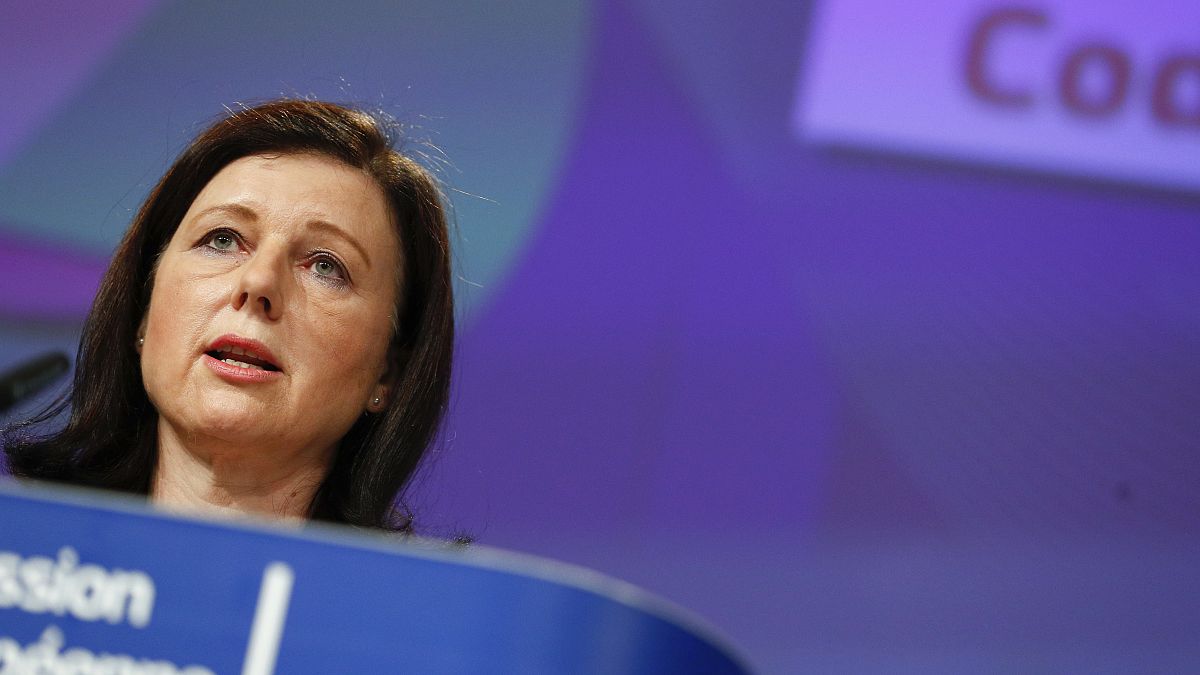Commissioner Jourova accused Moscow of spreading fake news.
The European Commission is concerned about disinformation coming from Russia in view of upcoming national and European elections.
Speaking on Tuesday in Brussels, Commission Vice President Vera Jourova said she is convinced the Kremlin is already active in trying to manipulate European voters.
As a result, she wants digital platforms that signed up to the so-called Voluntary Code of Practice on Disinformation to work on combatting it.
"The very large platforms must address this risk, especially when we have to expect that the Kremlin and others will be active before our European elections," Jourova told reporters.
"I expect signatories to adjust their actions to reflect that. There is a war in the information space waged against us and there are upcoming elections where malicious actors will try to use the design features of the platforms to manipulate."
"Upcoming national elections and the EU elections will be an important test for the code that platforms signatories should not fail."
Major online platforms, including Google, Meta, Microsoft and TikTok, that signed the code six months ago published on Tuesday a first report on how they turned their commitments to reduce the spread of disinformation into practice.
According to it, one million fake accounts were closed and misleading content was also restricted.
Twitter chose to withdraw its participation in the voluntary code of conduct earlier this year to which Jourova had a message for Elon Musk.
"Mr. Musk knows that he is not off the hook by leaving the code of practice because now we have the Digital Services Act fully in force," she said.
"And as Twitter has been designated a very large online platform, of course, there are obligations given by the hard law. So my message for Twitter is you have to comply with the hard law and we will be watching what you are doing."
According to the Vice President, the increasing use of AI also poses a significant problem when it comes to disinformation.
Yiannis Kompatsiaris, a director at the Information Technologies Institute in Greece, told Euronews that the EU's current policies are not enough to fight disinformation.
"We actually have a contradiction here. On the one hand, the platforms want mobility in terms of content," Kompatsiaris said.
"Misleading content often creates this mobility, so they go to deal with something which on the other hand creates this benefit and profit which they want."
"So it [the code of practice] is an important aspect in the fight against misinformation, but there are other important dimensions, such as education. People and citizens from an early age must be trained to acquire this critical view of digital media," he told Euronews.
Another solution being proposed includes technologies that automatically identify fake news.
